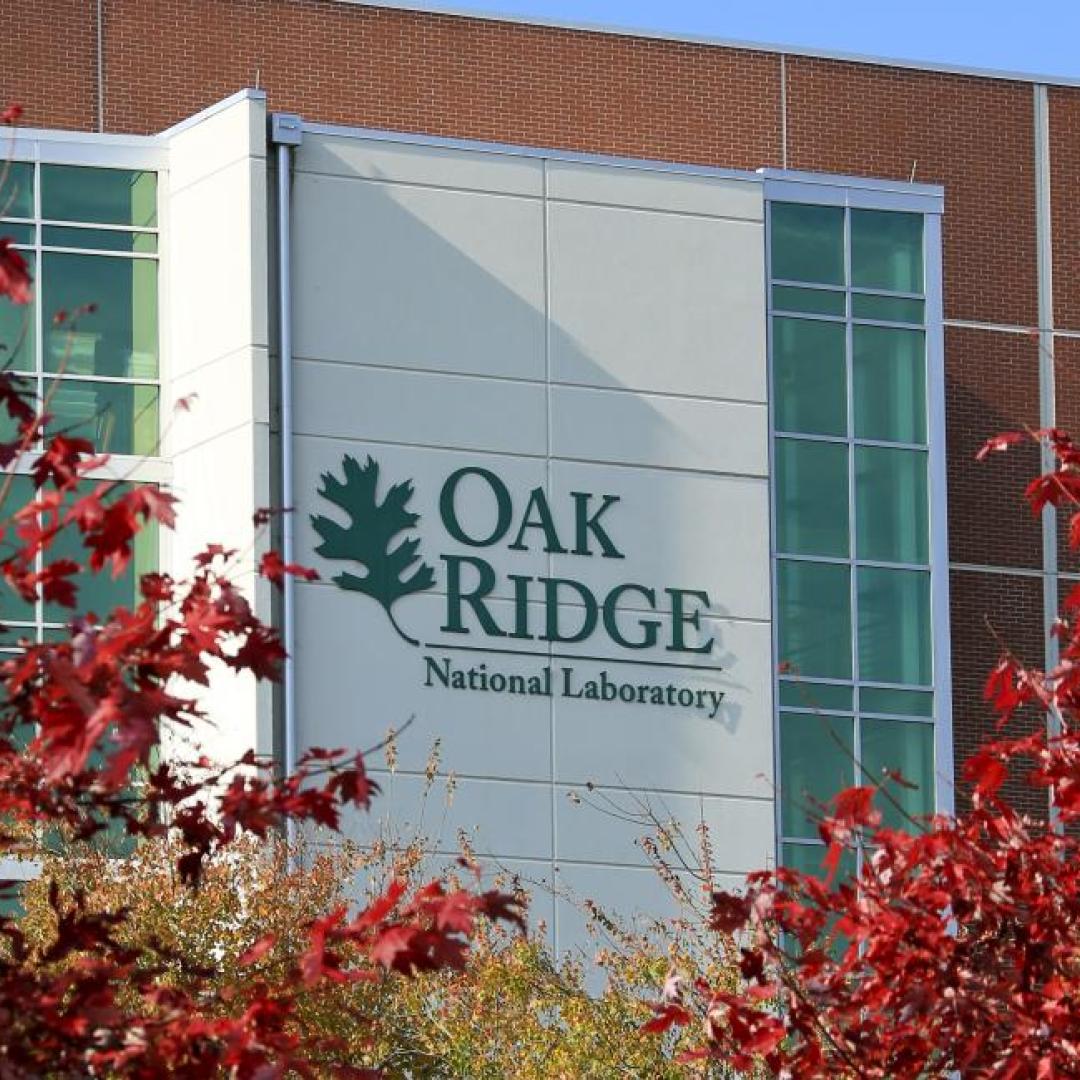Filter News
Area of Research
- Advanced Manufacturing (14)
- Biological Systems (14)
- Biology and Environment (84)
- Biology and Soft Matter (1)
- Building Technologies (3)
- Chemistry and Physics at Interfaces (5)
- Clean Energy (245)
- Climate and Environmental Systems (2)
- Computational Biology (4)
- Computational Engineering (2)
- Computer Science (4)
- Data (1)
- Energy Frontier Research Centers (8)
- Energy Sciences (2)
- Fossil Energy (2)
- Fuel Cycle Science and Technology (1)
- Functional Materials for Energy (7)
- Fusion and Fission (24)
- Fusion Energy (2)
- Geographic Information Science and Technology (2)
- Isotope Development and Production (2)
- Isotopes (17)
- Materials (237)
- Materials Characterization (2)
- Materials for Computing (13)
- Materials Synthesis from Atoms to Systems (6)
- Materials Under Extremes (6)
- National Security (40)
- Neutron Science (85)
- Nuclear Science and Technology (29)
- Nuclear Systems Modeling, Simulation and Validation (1)
- Nuclear Systems Technology (1)
- Quantum Condensed Matter (1)
- Quantum information Science (1)
- Reactor Technology (1)
- Renewable Energy (1)
- Sensors and Controls (2)
- Supercomputing (116)
- Transportation Systems (5)
News Type
Date
News Topics
- 3-D Printing/Advanced Manufacturing (55)
- Advanced Reactors (12)
- Artificial Intelligence (30)
- Big Data (12)
- Bioenergy (40)
- Biology (42)
- Biomedical (25)
- Biotechnology (10)
- Buildings (21)
- Chemical Sciences (35)
- Clean Water (7)
- Climate Change (35)
- Composites (11)
- Computer Science (68)
- Coronavirus (23)
- Critical Materials (11)
- Cybersecurity (23)
- Decarbonization (31)
- Education (3)
- Element Discovery (1)
- Energy Storage (54)
- Environment (71)
- Exascale Computing (11)
- Fossil Energy (1)
- Frontier (16)
- Fusion (20)
- Grid (22)
- High-Performance Computing (33)
- Hydropower (2)
- Isotopes (24)
- ITER (3)
- Machine Learning (16)
- Materials (65)
- Materials Science (62)
- Mathematics (3)
- Mercury (6)
- Microscopy (25)
- Molten Salt (2)
- Nanotechnology (32)
- National Security (30)
- Net Zero (5)
- Neutron Science (57)
- Nuclear Energy (38)
- Partnerships (25)
- Physics (40)
- Polymers (17)
- Quantum Computing (10)
- Quantum Science (29)
- Renewable Energy (1)
- Security (16)
- Simulation (12)
- Space Exploration (3)
- Statistics (1)
- Summit (22)
- Sustainable Energy (45)
- Transformational Challenge Reactor (4)
- Transportation (37)
Media Contacts
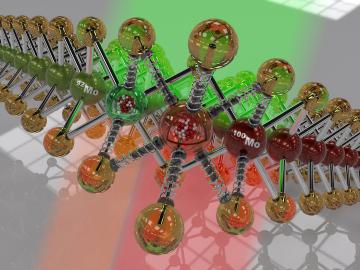
Research led by scientists at ORNL has demonstrated that small changes in the isotopic content of thin semiconductor materials can influence their optical and electronic properties, possibly opening the way to new and advanced designs with the semiconductors.
Luke Bertels, a Eugene P. Wigner Fellow, is helping determine ways to combine artificial intelligence and quantum computing, specifically to develop classical and quantum machine learning methods for using adaptive neural networks to study correlated molecules and chemical systems.
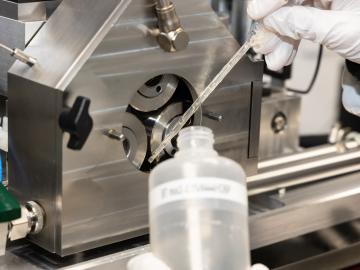
Scientists at the Department of Energy’s Oak Ridge National Laboratory have developed lubricant additives that protect both water turbine equipment and the surrounding environment.
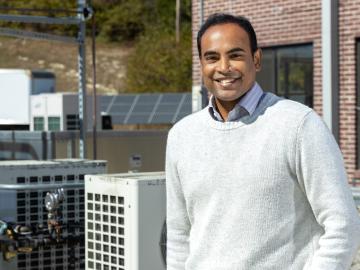
Cheekatamarla is a researcher in the Multifunctional Equipment Integration group with previous experience in product deployment. He is researching alternative energy sources such as hydrogen for cookstoves and his research supports the decarbonization of building technologies.
Auburn University’s McCrary Institute for Cyber and Critical Infrastructure Security was awarded a $10 million DOE grant in partnership with ORNL to create a pilot regional cybersecurity research and operations center to protect the electric power grid against cyber attacks.
Chemists at ORNL have invented a more efficient way to extract lithium from waste liquids leached from mining sites, oil fields and used batteries. They demonstrated that a common mineral can adsorb at least five times more lithium than can be collected using previously developed adsorbent materials.
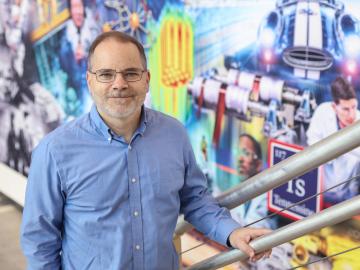
David Sholl has been named the executive director of the University of Tennessee-Oak Ridge Innovation Institute (UT-ORII) and vice provost of University of Tennessee, Knoxville, after serving as the institute’s interim leader since June 2023.
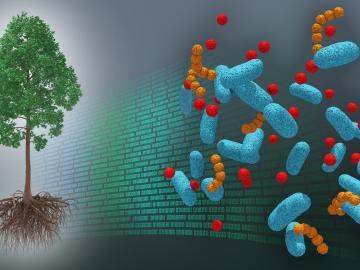
A first-ever dataset bridging molecular information about the poplar tree microbiome to ecosystem-level processes has been released by a team of DOE scientists led by ORNL. The project aims to inform research regarding how natural systems function, their vulnerability to a changing climate and ultimately how plants might be engineered for better performance as sources of bioenergy and natural carbon storage.
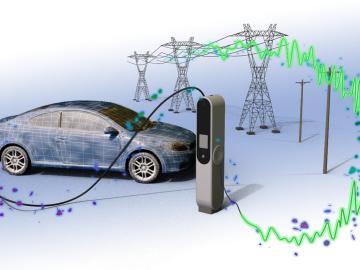
ORNL researchers are working to make EV charging more resilient by developing algorithms to deal with both internal and external triggers of charger failure. This will help charging stations remain available to traveling EV drivers, reducing range anxiety.
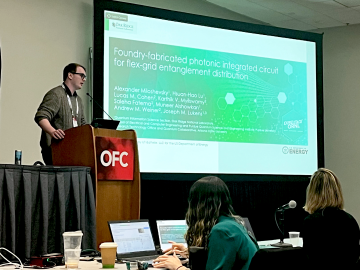
ORNL was front and center recently at one of the world’s largest optical networking conferences, the 2024 Optic Fiber Communication Conference and Exhibition, or OFC. ORNL researchers had major roles at the OFC 2024, a three-day event held in San Diego, California from March 26-28 which featured thousands of the world’s leading optical communications and networking professionals.




